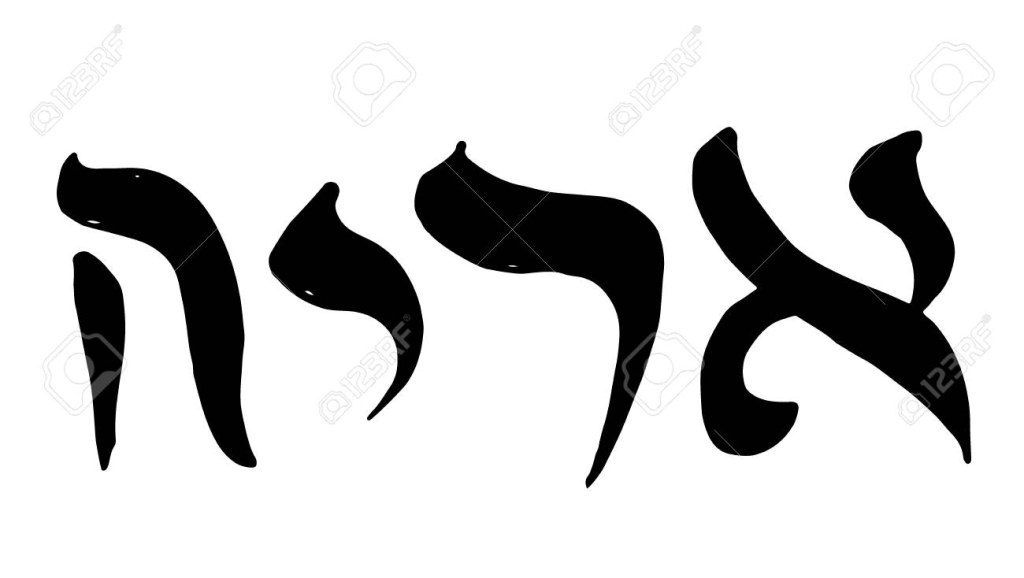The Majestic Lion In Hebrew: Unveiling The Roaring Power With A Click!
Lion in Hebrew: The Majestic Symbol and Meaning
Introduction
Good People,
2 Picture Gallery: The Majestic Lion In Hebrew: Unveiling The Roaring Power With A Click!


Welcome to this captivating exploration of the lion in Hebrew culture. Lions have long been revered for their strength, courage, and majestic appearance. In Hebrew, the lion holds a special place as a symbol of power and significance. Join us on this enlightening journey to uncover the rich meaning behind the lion in Hebrew culture.

Image Source: 123rf.com
In this article, we will delve into various aspects of the lion in Hebrew culture. We will explore its significance, symbolism, history, and more. Whether you are a Lions Enthusiast or simply curious about the lion’s role in Hebrew culture, this article is the perfect resource for you.
What is the Lion in Hebrew?
🦁 The lion, known as אַרְיֵה (aryeh) in Hebrew, is an iconic symbol deeply rooted in Hebrew culture. It represents strength, bravery, and nobility. Lions are seen as regal creatures, often associated with kingship and divine power.

Image Source: ytimg.com
In Hebrew literature, the lion is mentioned numerous times, both in literal and metaphorical contexts. It holds significant importance in religious texts, fables, and proverbs, conveying various moral and spiritual messages.
Let us now explore the different aspects of the lion in Hebrew culture:
Lion Symbolism
The lion symbolizes power, protection, and leadership in Hebrew culture. It represents the divine qualities of strength and courage. Lions are often associated with God’s might and the ability to overcome challenges. In ancient times, lions were also seen as protectors, guarding the people of Israel.
Lion in Hebrew Scriptures
The lion frequently appears in Hebrew scriptures, such as the Bible. It is mentioned in both the Old and New Testaments, depicting the lion’s symbolic significance. For example, in the Book of Genesis, the lion is referred to as the king of beasts and signifies royalty and authority.
Additionally, the lion is associated with several biblical figures, including Samson, who displayed great strength and bravery similar to that of a lion.
Lion in Hebrew Proverbs and Sayings
Hebrew proverbs and sayings often incorporate lion imagery to convey wisdom and life lessons. For instance, the phrase The lion has roared; who will not fear? emphasizes the importance of heeding warnings and being cautious.
These proverbs serve as moral guidelines, teaching values such as bravery, resilience, and wisdom through lion metaphors.
Lion in Hebrew Art and Architecture
The lion’s image is prevalent in Hebrew art and architecture, showcasing its cultural significance. Ancient Judean coins, for example, often featured lion motifs, symbolizing power and the Jewish people’s heritage.
Lion sculptures and reliefs can also be found in synagogues and other religious structures, representing the lion’s protective and majestic qualities in a tangible form.
Lion in Hebrew Names
The lion’s symbolic and powerful nature has influenced Hebrew names as well. Names like Ariel, which means lion of God, and Ari, meaning lion, are popular choices for both boys and girls.
These names reflect the desire to bestow strength, courage, and nobility upon individuals, echoing the lion’s characteristics.
Lion in Hebrew Folklore
Hebrew folklore often portrays the lion as a majestic and wise creature. Stories depict the lion as a guardian, protecting humans from harm. The lion’s revered status in folklore mirrors its importance in Hebrew culture.
Who are the Lions in Hebrew Culture?
🦁 Lions, termed אַרְיֵה (aryeh) in Hebrew, are symbolic figures associated with various aspects of Hebrew culture. Let’s explore who the lions are in Hebrew culture:
Lion of Judah
The Lion of Judah is one of the most prominent references to the lion in Hebrew culture. It symbolizes the tribe of Judah, one of the twelve tribes of Israel. The Lion of Judah represents leadership, strength, and the eternal reign of the Messiah.
Samson, the Strong
Samson, a biblical figure, is often associated with lion imagery. In the Book of Judges, Samson encounters a lion and tears it apart with his bare hands, demonstrating his extraordinary strength. This story showcases the lion’s power and serves as a testament to Samson’s bravery.
Lions as Symbols of God’s Power
In Hebrew culture, lions are also regarded as symbols of God’s power and might. The lion’s strength and fearlessness reflect God’s ability to protect and guide His people. This symbolism highlights the divine qualities associated with the lion in Hebrew culture.
Lion-like Characteristics in Hebrew Heroes
Hebrew heroes, such as King David, are often described as having lion-like qualities. Their courage, bravery, and leadership mirror the attributes of the lion, showcasing its influence on Hebrew heroes and their representations in literature and folklore.
Guardians of the Jewish People
Throughout history, lions have been viewed as protectors of the Jewish people. The lion’s presence in Hebrew culture represents a guardian-like figure that ensures the safety and well-being of the Jewish community.
Lions in Jewish Synagogues
Lion motifs can be found in Jewish synagogues, representing the lion’s protective qualities. These symbols serve as a reminder of the lion’s significance in Hebrew culture and its role in safeguarding the community.
When did the Lion in Hebrew Culture Emerge?
🦁 The lion’s significance in Hebrew culture has ancient roots and can be traced back to biblical times. The presence of lions in Hebrew culture emerged thousands of years ago and has since become deeply ingrained in various aspects of Hebrew identity.
The lion’s role in Hebrew culture can be seen in biblical texts, historical records, and artistic depictions throughout different periods. Its emergence predates recorded history, making it an enduring symbol of strength and nobility.
Where is the Lion in Hebrew Culture Found?
🦁 The lion’s presence in Hebrew culture can be found in various forms and locations:
In Hebrew Scriptures
The lion is mentioned throughout Hebrew scriptures, including the Bible. Passages referring to the lion highlight its symbolic and metaphorical significance within Hebrew culture.
In Synagogues and Religious Structures
Lion imagery can be found in synagogues and other religious structures. Carvings, sculptures, and artwork depicting lions showcase their importance in Hebrew culture and religious beliefs.
In Hebrew Names
Lion-inspired names, such as Ariel and Ari, are popular choices among Hebrew names. These names reflect the lion’s symbolism and are a testament to its presence in Hebrew culture.
In Hebrew Folklore and Proverbs
Hebrew folklore and proverbs incorporate lion imagery to convey wisdom and moral lessons. These stories and sayings emphasize the lion’s cultural significance and its role in shaping Hebrew beliefs and values.
In Historical and Archaeological Records
Lion motifs can be found on ancient Hebrew artifacts, such as coins and seals. These records provide evidence of the lion’s presence in Hebrew culture throughout history.
Why is the Lion Important in Hebrew Culture?
🦁 The lion holds great importance in Hebrew culture due to its symbolic qualities and representation of divine power. Here’s why the lion is considered significant in Hebrew culture:
Symbol of Strength and Courage
The lion’s strength and courage resonate with Hebrew traditions and values. It serves as a reminder of the importance of bravery and tenacity in the face of adversity.
Representation of Divine Power
Hebrew culture attributes divine power to the lion. It symbolizes God’s ability to protect and guide His people, highlighting the lion’s importance as a spiritual symbol.
Connection to Hebrew Heroes
Hebrew heroes, such as Samson and King David, are associated with lion-like characteristics. Their portrayal as lion-hearted individuals emphasizes the lion’s influence on Hebrew heroes and their cultural significance.
Guardian of the Jewish People
The lion represents a guardian figure in Hebrew culture, ensuring the safety and well-being of the Jewish community. Its protective qualities are deeply ingrained in Hebrew identity.
Depiction in Synagogues and Artwork
Lion imagery in synagogues and artwork reflects the lion’s importance in Hebrew culture. These visual representations serve as reminders of its symbolic meaning and cultural significance.
How Does the Lion Impact Hebrew Culture?
🦁 The lion’s impact on Hebrew culture is significant and far-reaching. It has influenced various aspects of Hebrew identity, beliefs, and traditions. Here’s how the lion impacts Hebrew culture:
Symbolic Significance
The lion holds deep symbolic meaning in Hebrew culture, representing strength, nobility, and divine power. It serves as a cultural touchstone, reminding Hebrew individuals of their heritage and values.
Inspiration for Hebrew Heroes
The lion’s qualities, such as courage and leadership, have inspired Hebrew heroes throughout history. Hebrew literature and folklore often depict hero figures with lion-like characteristics, showcasing the lion’s impact on Hebrew cultural narratives.
Cultural Identity
The lion’s presence in Hebrew culture contributes to a sense of cultural identity. It serves as a unifying symbol, connecting Hebrew individuals through shared beliefs, values, and traditions.
Religious Symbolism
Hebrew religious texts incorporate lion symbolism, highlighting the lion’s connection to spirituality and divine power. Its presence in religious contexts further reinforces its impact on Hebrew culture.
Artistic Expression
Artistic representations of lions in Hebrew culture, such as sculptures and illustrations, showcase the lion’s impact on artistic expression. These artworks serve as a testament to the lion’s cultural influence.
Continued Relevance
The lion’s significance has endured over time, remaining relevant and integral to Hebrew culture. Its impact can be seen in contemporary Hebrew practices, beliefs, and representations.
Pros and Cons of the Lion in Hebrew Culture
🦁 Like any cultural symbol, the lion in Hebrew culture has both advantages and disadvantages. Let’s explore the pros and cons of the lion’s presence in Hebrew culture:
Advantages
Symbolizes strength and courage, inspiring individuals to overcome challenges.
Connects Hebrew individuals through a shared cultural symbol and heritage.
Enhances artistic expression through lion-inspired artworks and designs.
Provides a visual representation of divine power and protection.
Incorporates moral and spiritual lessons through lion metaphors in proverbs and folklore.
Disadvantages
May lead to oversimplification of complex concepts or historical events.
Can perpetuate stereotypes or simplistic notions of strength and bravery.
Could overshadow other significant symbols or aspects of Hebrew culture.
May not fully represent the diversity within Hebrew culture and beliefs.
Can limit interpretations or understandings of Hebrew traditions and values.
Frequently Asked Questions (FAQ)
Q: Is the lion considered a sacred animal in Hebrew culture?
A: While the lion holds deep symbolism in Hebrew culture, it is not considered a sacred animal in the same way as certain animals are revered in other cultures. Instead, the lion represents spiritual qualities and serves as a metaphorical symbol.
Q: Are there any specific lion-related customs or rituals in Hebrew culture?
A: While there are no specific customs or rituals directly linked to lions in Hebrew culture, the lion’s symbolism and representations are often incorporated into broader cultural practices and religious ceremonies.
Q: How is the lion depicted in Hebrew artwork?
A: Lions are often depicted in Hebrew artwork as majestic, regal creatures. Sculptures, illustrations, and reliefs showcase their strength and protective qualities, emphasizing their symbolic significance in Hebrew culture.
Q: Are there any notable Hebrew individuals with lion-inspired names?
A: Yes, several notable Hebrew individuals bear names inspired by lions. Ariel Sharon, a prominent Israeli politician, and Ariel Winter, an American actress, are examples of individuals with lion-inspired names.
Q: How has the lion influenced Hebrew literature and storytelling?
A: The lion has had a significant impact on Hebrew literature and storytelling. It often appears as a metaphorical symbol, conveying moral and spiritual lessons through fables, proverbs, and biblical stories.
Conclusion
In conclusion, the lion in Hebrew culture holds immense significance as a symbol of strength, courage, and divine power. It has influenced various aspects of Hebrew identity, from religious texts to folklore and artwork. The lion’s presence in Hebrew culture serves as a reminder of the values and heritage shared by Hebrew individuals. By exploring the lion in Hebrew culture, we gain a deeper understanding of its impact and timeless relevance.
Now that you have discovered the captivating world of the lion in Hebrew culture, we encourage you
This post topic: Lions



